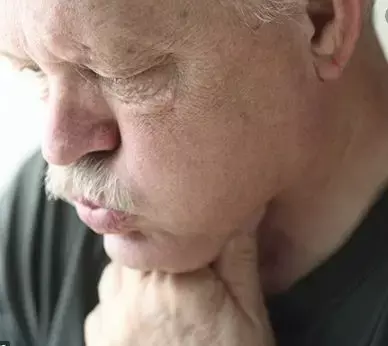- Home
- Medical news & Guidelines
- Anesthesiology
- Cardiology and CTVS
- Critical Care
- Dentistry
- Dermatology
- Diabetes and Endocrinology
- ENT
- Gastroenterology
- Medicine
- Nephrology
- Neurology
- Obstretics-Gynaecology
- Oncology
- Ophthalmology
- Orthopaedics
- Pediatrics-Neonatology
- Psychiatry
- Pulmonology
- Radiology
- Surgery
- Urology
- Laboratory Medicine
- Diet
- Nursing
- Paramedical
- Physiotherapy
- Health news
- Fact Check
- Bone Health Fact Check
- Brain Health Fact Check
- Cancer Related Fact Check
- Child Care Fact Check
- Dental and oral health fact check
- Diabetes and metabolic health fact check
- Diet and Nutrition Fact Check
- Eye and ENT Care Fact Check
- Fitness fact check
- Gut health fact check
- Heart health fact check
- Kidney health fact check
- Medical education fact check
- Men's health fact check
- Respiratory fact check
- Skin and hair care fact check
- Vaccine and Immunization fact check
- Women's health fact check
- AYUSH
- State News
- Andaman and Nicobar Islands
- Andhra Pradesh
- Arunachal Pradesh
- Assam
- Bihar
- Chandigarh
- Chattisgarh
- Dadra and Nagar Haveli
- Daman and Diu
- Delhi
- Goa
- Gujarat
- Haryana
- Himachal Pradesh
- Jammu & Kashmir
- Jharkhand
- Karnataka
- Kerala
- Ladakh
- Lakshadweep
- Madhya Pradesh
- Maharashtra
- Manipur
- Meghalaya
- Mizoram
- Nagaland
- Odisha
- Puducherry
- Punjab
- Rajasthan
- Sikkim
- Tamil Nadu
- Telangana
- Tripura
- Uttar Pradesh
- Uttrakhand
- West Bengal
- Medical Education
- Industry
Posterior Tracheopexy may effectively repair tracheo-esophageal fistula; finds study

According to recent research report, the surgical treatment of recurrent tracheo-esophageal fistula (TEFs) that incorporates a posterior tracheopexy and rotational esophagoplasty is highly effective for preventing re-recurrence with low perioperative morbidity. The results were published online in the Journal of the American College of Surgeons.
A recurrent tracheo-esophageal fistula can complicate esophageal atresia and tracheo-esophageal fistula (TEF) repair in children. Therapeutic approaches and the rate of recurrence vary widely. Most reports are limited by small cohorts and short-term follow-up, and rates of re-recurrence are substantial, making it difficult to select the treatment of choice. To address this challenge, the surgeons in the Esophageal and Airway Treatment (EAT) Center at Boston Children's Hospital have developed an innovative approach to treat recurrent TEFs with a posterior tracheopexy.
Researchers aimed to review our experience with the treatment of recurrent TEF using posterior tracheopexy, focusing on operative risks and long-term outcomes.
The team conducted a retrospective review of patients with esophageal atresia TEF with recurrent TEF treated at 2 institutions from 2011 to 2020. In the surgical approach,once the TEF is divided and repaired, the membranous trachea is sutured to the anterior longitudinal ligament of the spine (posterior tracheopexy) and the esophagus is rotated into the right chest (rotational esophagoplasty), separating the suture lines widely. To detect re-recurrence, patients undergo endoscopic surveillance during follow-up.
Results highlighted some interesting facts.
- Sixty-two patients with a recurrent TEF were surgically treated (posterior tracheopexy/rotational esophagoplasty) at a median age of 14 months. All had significant respiratory symptoms.
- On referral, 24 had earlier failed endoscopic and/or surgical attempts at repair. Twenty-nine required a concomitant esophageal anastomotic stricturoplasty or stricture resection.
- Postoperative morbidity included 3 esophageal leaks, and 1 transient vocal cord dysfunction.
- They have identified no recurrences, with a median follow-up of 2.5 years, and all symptoms have resolved.
"In a field where re-recurrence of recurrent TEF has been common, the emergence of a procedure with a zero-percent recurrence rate and minimal morbidity is a game-changer."the team concluded.
For full article follow the link: https://doi.org/10.1016/j.jamcollsurg.2021.01.011
Primary soure: Journal of the American College of Surgeons
Dr Satabdi Saha (BDS, MDS) is a practicing pediatric dentist with a keen interest in new medical researches and updates. She has completed her BDS from North Bengal Dental College ,Darjeeling. Then she went on to secure an ALL INDIA NEET PG rank and completed her MDS from the first dental college in the country – Dr R. Ahmed Dental College and Hospital. She is currently attached to The Marwari Relief Society Hospital as a consultant along with private practice of 2 years. She has published scientific papers in national and international journals. Her strong passion of sharing knowledge with the medical fraternity has motivated her to be a part of Medical Dialogues.
Dr Kamal Kant Kohli-MBBS, DTCD- a chest specialist with more than 30 years of practice and a flair for writing clinical articles, Dr Kamal Kant Kohli joined Medical Dialogues as a Chief Editor of Medical News. Besides writing articles, as an editor, he proofreads and verifies all the medical content published on Medical Dialogues including those coming from journals, studies,medical conferences,guidelines etc. Email: drkohli@medicaldialogues.in. Contact no. 011-43720751


